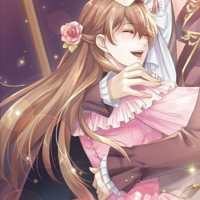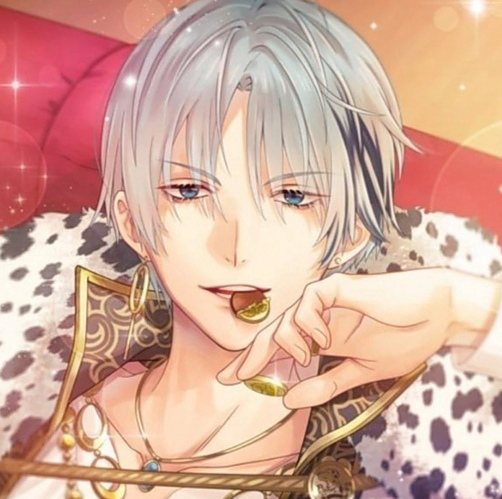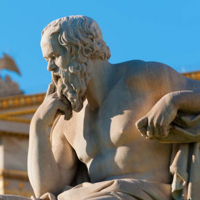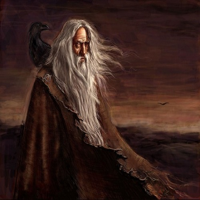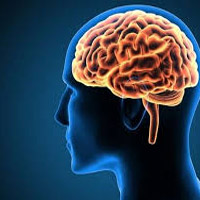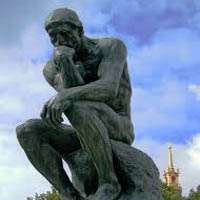Gilbert von Obsidian نوع شخصية MBTI
شخصية
"ما نوع الشخصية Gilbert von Obsidian؟ Gilbert von Obsidian هو نوع INFJ في mbti ، 5w4 - sx/so - 514 في enneagram ، SCOEI في Big 5 ، IEI في Socionics."
Not going to type yet because I've just finished his route. This comment is for brainstorming/encouraging discussion. Spoiler alert to his route. I think I agree with INFJ. I'll start by saying I see no Fi beyond the basics that almost every person has. His biggest problem is that he's supposed to literally be MC who has lost her ideals. If we go by that, he would be an Fi-dom, but I don't see it. He seems straightforward in his methods (Te), but he isn't really? He values independent thinking a lot and actually gets annoyed if he is simpley agreed with just for his status/absolute power. Initially implies he thinks people with higher status get to rule over others, but this is clearly not actually the case. Seeks to remove social structures/power dynamics/status in the government. This can be seen in his desire for a democratic government. Very clearly shows that he believes experts in a set field are better and should be the ones making decisions regarding the field instead of authoritative figures. Makes people equal in power. This strongly goes against Te and the general logic of the society of his time. In contrast to Chevalier (clear Te user), his knowledge is less broad and more focused. There are many instances of him testing his framework of logic (Ti) instead of expanding it (Te). Is contradictory by nature but needs logical consistency. Establishes frameworks/systems/schemas for logical consistency. His thought process: "if a variable falls out of the general, consistent logic (system), this must either be because the framework of logic (system) is flawed and must be edited, or because the variable is somehow out of place/unique in the system." For further analysis, let's take a look at the way he decides to determine "human nature." Think of human nature as a system that he is trying to grasp: From childhood seeks to understand what is human nature. What are humans like at their core? What is the one description that defines humanity? What is the relationship between corruption, enviornment, power? How does it correspond to time? (Ni) Gilbert is first presented with an observation ("all people in power end up corrupt"), then he seeks to figure out how this observation came to place and makes a hypothesis ("if people in power are corrupt, this must be because of their environment/the people who are in power could only make it to power because they are corrupt" [survivorship bias]). This hypothesis is not based on fact, it is simply a broad observation of the world put into a system that sounds correct (Ni-Ti). In contrast, Chevalier (Te) does not even bother to answer the question of human nature and only agrees with those observations of Gilbert that are empirical (the survivorship bias comment). Why would he? That's not a question that can be objectively answered. As Gilbert grows up, he re-evaluates his understanding of human nature based on past experience — "all people end up corrupt, and it is only a matter of time until they do." However, he is now no longer certain whether humanity is good or evil by nature. His solution? Test the hypothesis using a system. When he finds out about MC, he decides that, being Belle who is with the purest heart in Rhodelite, she will reflect his judgment of whether or not humanity is good by nature. In other words, MC is a system he uses to test his framework of logic. (Ni-Ti) There is absolutely no "objective evidence" in this method of judging. Te does not build systems. It judges them: "How is this asset valuable? Is this system generalisable? Is it trustful? Is it reliable? Can it be used for anything? Is it useful or useless?" Again, Chevalier is the perfect example of this. "What is the value of love? What do I gain from it? Why should I use it? Is it more effective to use the method of "love" in this situation, or should I use another?" In contrast, Gilbert doesn't even raise these questions. He doesn't care for the *effectiveness* of love, he cares for its nature and its applicability/achievability ("Love is corruption and control because what I love, I do not want to leave me.") In this scenario, he further delves into a system, evaluating its internal assets (causes, nature, configuration) rather than its external values (effects). My conclusion? His Te is a result of his environment. Under natural circumstances, he would not have grown up with such a developed Te. Te is the way he deals with a problem (esp in matters related to the Empire), but it is quite apparent that he judges it using Ti, and Ti still takes precedence over Te. Te is an act that he puts on for the purpose of survival. Te can often be seen in his "villain" act (early in the route), but it is rare later on. Anyway, to end this ramble on a joke: For >90% of the INTJs I see in media, I hate their guts (and vice-versa: if I hate a character [very rare thing], they are probably an INTJ), and I don't hate Gilbert, so he's probably not an INTJ XD Edit to elaborate!
سيرة شخصية
He may look nice, but don't let his looks deceive you. He's the most feared prince you'll come across. And he has a secret... in which if you find out, that may very well be the last day of your life.


